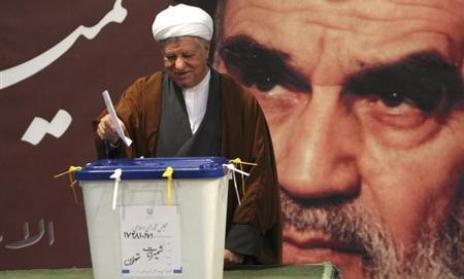So too was Esfandiar Rahim Mashaie, a close aide to outgoing president Mahmoud Ahmadinejad, whose hardline followers have jockeyed with those of Supreme Leader Ayatollah Ali Khamenei.
Both rejections may generate angry responses and Mashaie for one said he would appeal, while urging supporters to stay calm.
Most of the remaining eight men on the ballot for the first round on June 14 are seen as loyalists to Khamenei, who seems determined to avoid a repeat of the popular unrest that followed Ahmadinejad`s re-election in 2009 - especially at a time when Iran is engaged in bitter economic, diplomatic and military confrontations with the West, Israel and its Arab neighbors.
The outcome - and the extent to which voters will turn out to lend the election legitimacy - remain in considerable doubt.
There is no clear frontrunner in a field that now includes Saeed Jalili, the chief negotiator for Iran`s controversial nuclear program, Ali Akbar Velayati, Khamenei`s foreign policy adviser, and Mohammad Baqer Qalibaf, the mayor of Tehran.
With economic hardships increasing as a result of Western sanctions over the nuclear dispute, some Iranians have favored a change of tack and there is still substantial public support for reformist leaders who disputed their electoral defeat four years ago and are now under house arrest.
Some of that might have been channeled to Rafsanjani, 78, a key figure alongside Ayatollah Ruhollah Khomeini during the 1979 Revolution, who was president from 1989 to 1997 and in 2009 earned the wrath of hardliners by sympathizing with reformists during the worst unrest since the state was founded.
Two of Rafsanjani`s children have recently been imprisoned.
Like Mashaie, an almost constant presence by the outspoken Ahmadinejad`s side, Rafsanjani registered his candidacy at the last moment, shaking up a race that failed to inspire enthusiasm among an electorate more concerned about economic difficulties.
More about:
















































